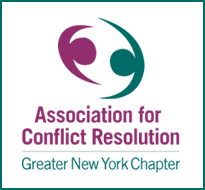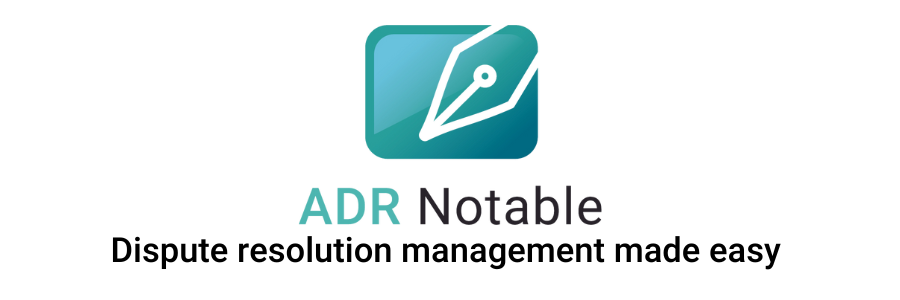|
.png)
.png)
VIEW BIOS OF THURSDAY SPEAKERS 8:00am Our Roundtable Breakfast Discussions take place monthly and are produced in partnership with the CUNY Dispute Resolution Center at John Jay College. The way we manage and even think about conflict has undergone a fundamental transformation in the past 10 years. Our definition of conflict is evolving. Our understanding of the relationship between conflict, fairness and engagement has also changed. We are moving steadily toward a proactive approach for managing conflict. An approach that embraces the idea that the best managed conflict is conflict that never happened. This has led to a rethinking of how conflict is managed. In this discussion we will explore:
10:10am This contribution explores the potentials and pitfalls of further developing restorative learning circles as a methodology in collaborative research projects that involve a diverse range of institutions and actors, including stakeholders, practitioners, and individuals with firsthand experience of the issue being studied. Restorative learning circles are conducive to making every voice heard, alleviating power dynamics and providing more comprehensible outcomes. As a result, restorative learning circles offer an opportunity to seriously and carefully consider the experiences, testimonies, and ideas of individuals and populations who are generally silenced and discredited in knowledge production and transmission. In other words, restorative learning circles provide a concrete perspective to tackle epistemic injustices (Fricker, 2007). However, the use of restorative learning circles as a research methodology also raises new questions and challenges. Specific guidelines need to be discussed to ensure that the circumstances of the development of restorative learning circles as a research methodology do not compromise the foundations and values of restorative justice, do not create situations of greater vulnerability, and do promote a more equitable distribution of knowledge power within communities. 10:50am Colleges and universities are increasingly implementing restorative practices (RP) with the goals of building a sense of campus community, creating opportunities for inclusion and belonging, establishing safe and brave spaces to engage in challenging but necessary conversations, and responding to incidents of bias and other forms of harm. Many RP initiatives are incorporated into campus Diversity, Equity, and Inclusion (DEI) initiatives, given that the restorative approach is an alternative to traditional hierarchical and punitive approaches that can create exclusionary practices and worsen inequities. In this workshop, participants will learn about a partnership between a community dispute resolution center and a local university diversity office, which uses a multi-year training and consultation model focused on developing a cadre of Restorative Champions who have been charged with leading implementation of RP on campus. Participants will hear themes and quotes from surveys and interviews with the Restorative Champions, in their own words, about what it was like to begin their journey as a Restorative Champion, what elements of the training and consultation services they received were most helpful, what challenges they faced, and how being a Restorative Champion has affected them personally and professionally. 11:45am Unveiling the subtle influences that shape our perceptions, unconscious bias manifests as a collection of attitudes and stereotypes that operate beneath our awareness. Its impact, though often subtle, can be insidious. These biases, encompassing realms such as race, gender, class, and sexual orientation, might not align with our conscious beliefs yet wield influence over our actions. This poses a significant challenge for those tasked with impartiality, including mediators, arbitrators, judges, as well as professionals like lawyers, bound by ethical obligations to uphold unbiased conduct. The silver lining lies in the adaptability of unconscious bias, also known as "implicit bias." In this webinar, Helen Winter offers a navigational "user's guide" through peer-reviewed social psychology research on strategies for bias reduction based on her and David Hoffman's article "Follow the Science: Proven Strategies for Reducing Unconscious Bias" recently published in the Harvard Negotiation Law Review. 12:45pm As we open to a broader embrace of multidisciplinary approaches to conflict resolution, we begin to see how the environment - the natural world of which we are inherently a part - supports our work. Even if we engage with parties exclusively in indoor settings, we can avail ourselves of the healing and restorative peacemaking potential of the living world outside. Images, guided imagínal practices, and nature objects become peacemaking tools in this model. This interactive session will combine story, nature-based practices, and ecological concepts to demonstrate the role that nature can play in conflict resolution work. Participants should bring with them to this session: journal, pens, and at least one meaningful nature object. 1:45pm 0.5 CLE CREDIT Recent advances in brain science have started to explain the mechanisms of us/them thinking in humans, and the catastrophic impacts of this thinking on human behavior. These mechanisms result in dehumanizing and hostile behaviors that can be difficult to rationalize. By better understanding the nature of us/them thinking, the presenter will discuss how this science can help us overcome this type of thinking in the context of mediation or individual conflict management. 2:40pm The international focus on Business and Human Rights (BHR) has led to a consideration of arbitration as a means to address such issues, distinct from Corporate Social Responsibility (CSR). BHR is supported by the United Nations Guiding Principles on Business and Human Rights (UNGPs), with the third pillar emphasizing effective Access to Remedy. The Organization for Economic Co-operation and Development (OECD) updated its Guidelines for Multinational Enterprises to align with UNGPs, requiring member states to establish National Contact Points (NCPs) for Responsible Business Conduct. However, NCPs heavily rely on conciliation and mediation due to limitations. The Hague Rules, based on UNCITRAL Arbitration Rules, are designed to meet UNGPs' criteria for effective access to remedy. The presentation suggests that arbitration, used collaboratively with non-adversarial dispute mechanisms, could enhance effective access to remedy in NCPs. 3:20pm Conflict is a natural part of life. Better boundaries can improve relationships, reduce and prevent conflict, and support conflict resolution. In addition, boundaries can reduce misunderstandings and resentment, and foster trust, cooperation, and satisfaction. Boundaries are essential to relationships and conflict resolution because clear communication and expectations help people to feel safe(r). Until we know we can make and hold boundaries, we might not be comfortable enough to relax, be our true selves or open our hearts toward safety and resolution. The word 'boundaries' is used a lot – and often what is shared is misleading – or at least not the full picture. The presentation will debunk common misconceptions about boundaries and offer practical strategies so that people can be more confident setting and upholding boundaries that are clear, aligned and accurately communicated. The main teaching points will include: - 7 myths that get in the way of maintaining clear and aligned boundaries (that we often internalize as doing or having something wrong with us); and - 7 actionable strategies to both understand the deeper reasons people might struggle to uphold certain boundaries (and what can be done about it). 4:20pm 0.5 CLE CREDIT Experienced mediators of all kinds run into parties whose behaviors are wildly out of step with the mediation norms we strive for. Civility, turn taking, perspective taking, negotiation: all of these things are ignored and perhaps sometimes steamrolled by these unskilled and dynamic communicators. But there is hope, if we can identify these behaviors early and make the proper adjustments. This workshop will focus on what is called the Dynamic style of communication, which is high in emotionality and nonlinear in substantive conversations. First, we will take a look at some of the traits of Dynamic communication, in contrast to more restrained and more direct styles of communication. Then, we will look at some of the skills we might use. The goal is for the workshop participants to have a deeper appreciation for the range of personalities we encounter and some new skills to use when the parties act in this manner. |








